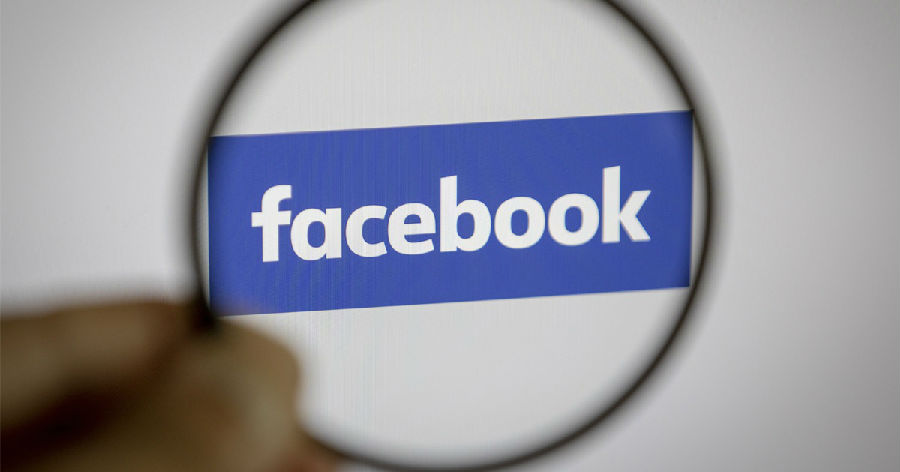HOW USERS CAN HOLD FACEBOOK ACCOUNTABLE
用戶如何追究Facebook的責(zé)任
By Lisa Eadicicco
文/麗薩·埃迪奇科
It is not easy to protect 1.4 billion people every day.
每天要保護(hù)14億人并不容易。
But if Facebook wants to be the home where all those people share their likes and heartbreaks and plans and politics with acquaintances online,
然而,如果Facebook想成為大家和網(wǎng)友分享喜好、心酸、計(jì)劃以及討論政治的港灣,
it had better try a lot harder.
那它還得狠狠地努力才行。
That was the thrust of the news on March 17,
這也正是3月17日新聞的主旨,
when the Observer of London and the New York Times revealed that analytics firm Cambridge Analytica improperly obtained data from 50 million Facebook accounts.
當(dāng)日,倫敦的《觀察家報(bào)》和《紐約時(shí)報(bào)》披露,分析公司“劍橋分析”采取非正當(dāng)首段獲取了5000萬(wàn)Facebook賬戶的信息。
The company, which worked with both Senator Ted Cruz and Donald Trump on their 2016 presidential campaigns,
該公司,2016年的總統(tǒng)競(jìng)選活動(dòng)期間曾與參議員特德·克魯茲和唐納德·特朗普密切合作,
then attempted to build psychological profiles of potential voters — with the hopes of using them to determine whom to target.
當(dāng)時(shí)是想建立潛在選民的心理資料——希望利用這些資料來(lái)確定拉攏對(duì)象。
But in this case, unlike other recent privacy breakdowns — like the Equifax data breach that put 145.5 million accounts at risk — thieves or hackers did not steal information.
然而,在這次的情況中,不同于近期的其他隱私事故——比如將1.455億賬戶暴露在危險(xiǎn)之下的艾奎法克斯數(shù)據(jù)泄露事件——竊賊或黑客并沒(méi)有竊取用戶們的信息。
The company actually just handed the data over, then didn’t watch where it went.
實(shí)際上,該公司只是把數(shù)據(jù)上交了,之后卻沒(méi)有監(jiān)管數(shù)據(jù)去了哪里。

As Facebook itself reported,
正如Facebook自己指出的那樣,
Aleksandr Kogan, the academic researcher who first obtained the information through an app he developed,
壓力山大·科根,通過(guò)自己開發(fā)的應(yīng)用最先獲取了那些信息的學(xué)術(shù)研究員,
did so “in a legitimate way and through proper channels” and violated Facebook’s policies only when he passed it on to Cambridge Analytica.
是“以合法的方式并通過(guò)適當(dāng)?shù)那馈鲍@取的資料,只是在將信息交給“劍橋分析”后才違反了Facebook的政策。
The social network was also under the impression until recently that the harvested data had been deleted,
直到最近,該社交網(wǎng)絡(luò)一直以為獲得的數(shù)據(jù)已經(jīng)刪除了,
but the Times says it has viewed a set of it.
但《泰晤士報(bào)》表示他們已經(jīng)看過(guò)一組數(shù)據(jù)了。
Right now, it’s not clear who else can see the data.
目前,還有誰(shuí)能看到那些數(shù)據(jù)尚不清楚。
All This has prompted sharp criticism of the company,
這一切都引起了人們對(duì)該公司的尖銳批評(píng),
which meticulously tracks its users but failed to keep track of where information about the lives and thinking of those people went.
因?yàn)樗牡馗櫽脩舻臄?shù)據(jù),卻未能跟蹤到有關(guān)這些人的生活和思考的信息最后去了哪里。
Facebook’s shares were down by 6.8% in the first business day after the reports.
報(bào)告發(fā)布后的第一個(gè)交易日,F(xiàn)acebook的股價(jià)下跌了6.8%。
Lawmakers in both the U.S. and Britain, where Cambridge Analytica did similar work ahead of the Brexit referendum,
美國(guó)和英國(guó),英國(guó)脫歐公投前劍橋分析也做過(guò)類似的工作,的立法者們
have demanded testimony from Facebook chief Mark Zuckerberg.
紛紛要求Facebook首席執(zhí)行官馬克·扎克伯格出面作證。
The U.S. Federal Trade Commission and state attorneys general have reportedly begun investigations.
據(jù)報(bào)道,美國(guó)聯(lián)邦貿(mào)易委員會(huì)和州檢察長(zhǎng)已對(duì)此事展開調(diào)查。
On the site itself, many users mused, Why are we still here?
在Facebook網(wǎng)站上,許多用戶都在思考,為什么我們還在用Facebook?
This all comes at a time when the company reported that it had seen a decrease in daily active users in the U.S. and Canada for the first time — from 185 million to 184 million — in the fourth quarter of 2017.
此事恰逢該公司報(bào)告該網(wǎng)站美國(guó)和加拿大每日活躍用戶數(shù)量首次出現(xiàn)了下降——從1.85億降至1.84億人——時(shí)間為2017年第四季度。
譯文由可可原創(chuàng),僅供學(xué)習(xí)交流使用,未經(jīng)許可請(qǐng)勿轉(zhuǎn)載。


